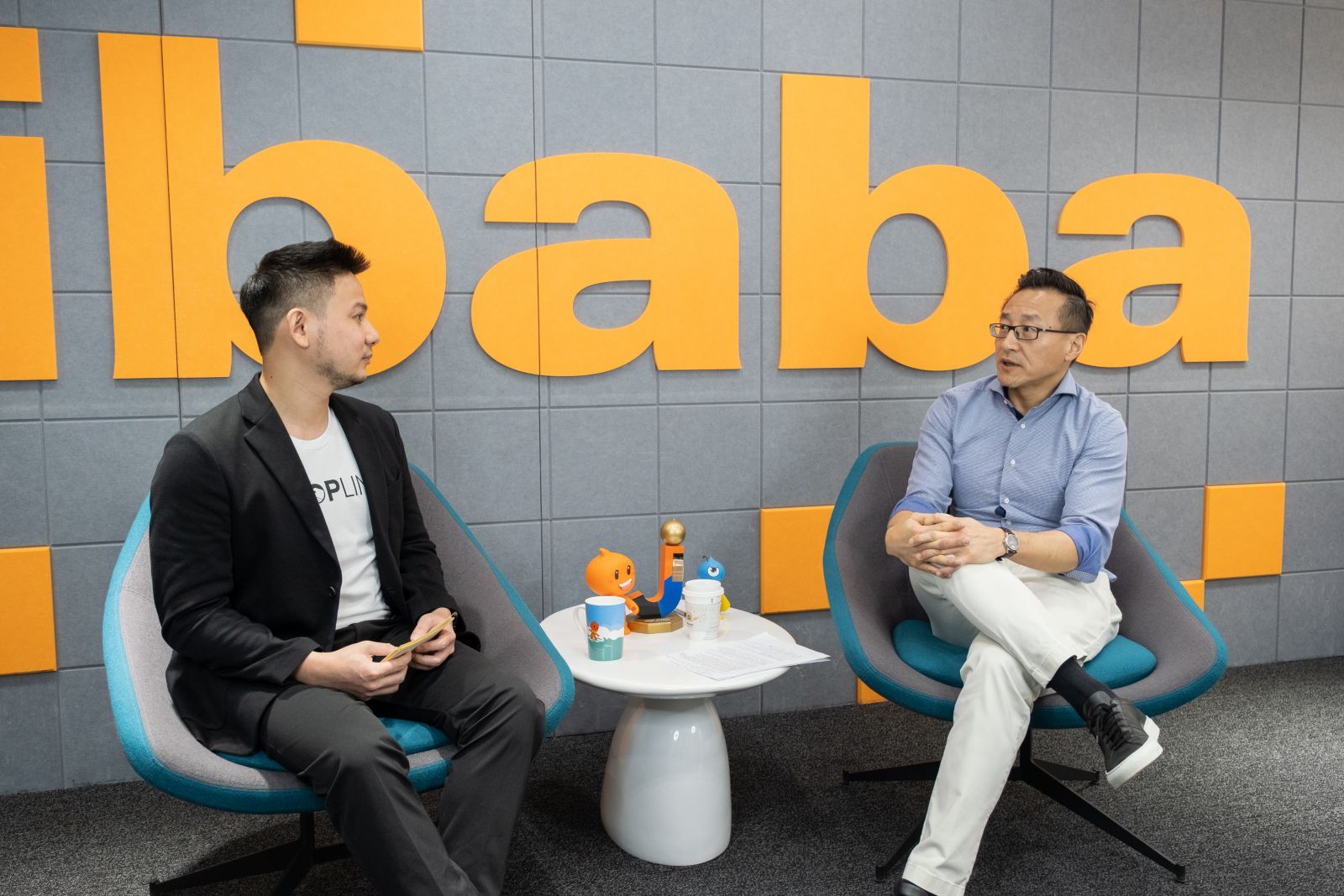wavered back then from our focus on the customers. When we learned that our whole company may have had to be quarantined, we moved our computers home. Everyone still had big computers and we had to lug all that equipment home. We wanted to make sure that when customers emailed or called us, we could serve them. Fast forward to today and our focus on the customer is still an absolute priority. Obviously, the first thing you want to do is make sure your employees are safe and working in conditions where things continue to function. As long as that’s in place, they can continue to serve their customers. Let
’s say you
’re in the restaurant business and the restaurant has shut down—there
’s nothing you can do about it. But I think a lot of companies now are thinking of alternatives. Just because the restaurant
’s shut down, customers don
’t stop eating and the alternative is adapting to takeout. The adaptability of the business is very important. Teamwork and internal communication are key to adapting to a new normal.
Tony: I’d add that having a good working relationship with your co-founders is essential. I’m very lucky to have my co-founder, Fiona Lau, and we separate our roles clearly. It’s not always easy—that relationship is something similar to marriage, in a way. You clearly have a strong and successful relationship with Jack Ma. How did you maintain this relationship for so many years, and also with the 17 other co-founders you had from the beginning at Alibaba? What’s your advice for confronting the issues or arguments that come up?
Joe: I have been very lucky in that Jack and I are very different people. We come from two opposite ends of the extreme in terms of personality and skill sets. From day one, we recognized that Jack has so many skills and talents that I don't. He can just get out there and communicate really well. In terms of talking about a vision for the company and getting employees inspired, he's the best. I can't do that because I'm not naturally a good public speaker. Then there are the areas I excel at where Jack relies on me, like in setting up a legal structure or finance. As you said, just like in a marriage, you have division of responsibilities and you need to have a lot of respect for one another. Respect doesn’t mean there are no light moments and Jack often jokes about me, even in front of colleagues. With jokes and things like that, it’s important never to take it personally. With trust, you can laugh at one another—even in front of other people.
.jpg) Tony
Tony: As we say, you must have failed a lot of times before you got it right. With these challenges, each one of them becomes more difficult than the next because of different phases. What is the biggest challenge that startups should be paying attention to, especially now?
Joe: I think it’s identifying the right people and putting them in the right place to do the right things. People are the biggest challenge, but getting the people aspects right is also the most rewarding. As an entrepreneur, you want to be very focused on people—making sure that they buy into the company culture and developing them continuously so they’re more valuable every year to your business. When you first start, for the first six months you're trying to get your product ready, you're setting up a company, you're opening bank accounts and things like that. None of those things involve people. But as you scale your business, you should be spending more time on people.
Tony: Startups face a lot of issues with people. Sometimes, you have good people who join the team but they don’t fit. What’s your take on this?
Joe: At Alibaba, we've always said there's no best talent. There's the right talent, in the right place, at the right time. Sometimes you put people in the wrong position and they don’t have the room and the opportunity to do what they're best at. Being the boss, you want to have that keen sense of who's the right person for the right job. We also look at personality traits and who’s a team player. If people come into an organization and present negative energy, that's bad. You want to get rid of that negative energy quickly because it can affect other team members. But people who can bring in positive energy will motivate and inspire their teammates.
"If you’re just chasing ideas, then you don't have the passion. You're chasing it because it's a money-making opportunity and not because you really love pursuing your mission. Let your mission guide your direction."
Joe Tsai
When dealt a bad hand, go back to the fundamentals
Tony: A lot of startups didn’t make it through COVID-19, and many that did are struggling. These startups need to shift their fundraising strategies but they have the lower hand with negotiations. What advice would you give to these startups?
Joe: You can definitely look inward to change your bad hand. See what you can improve to present your business in a substantive way, not just to show, but to present business better to investors. For example, your fundamental business model should be intact even if customers have slowed down. Can you continue to show that you have a way to get to positive unit economics? Let's say you’re selling something on e-commerce and your customer acquisition cost is so high that you don't have positive unit economics, like every time you sell an item, you're losing money in terms of negative gross margin. I will say that's a model that would never be able to help you raise money. Looking at the fundamentals of your business, showing that the unit economics could turn positive with a specific plan—that’s going to be compelling to potential investors.
Tony: And now, the interesting thing is that in the current environment the interest rates are very low.
Joe: Yes, and that’s favorable to companies that issue stock based on a growth story because investors, when they value a business—just based on a simple discounted cash flow model—will care less about your current earnings or cash flow. Investors need to believe that you will have positive cash flow and good growth over a longer period of time. Look at the terminal value in the discounted cash flow model, if you show high growth beyond the terminal year, it means you'll have a very high terminal value. Discounted to present value at a low cost of capital because of low interest rates, it's actually worth a lot. So, how can you tune your business so that you can show unit economics viability and high growth? Maybe not necessarily in the next 12 months, but over three, five, seven years it will continue to grow. Those are characteristics that will be attractive to investors.
Tony: For founders and entrepreneurs, the dilution is an important topic when fundraising. A lot of founders get hung up on that valuation value. If it's too low they might not take it because of their own pride. What’s your take on this?
Joe: Sometimes, entrepreneurs care too much about valuation. Of course, valuation matters because if you sell your company too cheap it's too dilutive to the founders.You want to manage that dilution. But if dilution is not a huge issue for you, then don't raise money on high valuations just because of pride or ego, because you'll end up disappointing your investors. You always want your investors to be able to make money and be happy. So, for those that are, for example, going public, raising money into the public market context, depending on which market you're listing, you're not selling the whole company. You're selling maybe 10%, 15%, 25% of your equity. That's the level of dilution. If you try to push the valuation too high, then it's not worth it because then investors buy your stock, they lose money and they will just leave. The balance between dilution and meeting investor expectations is leaving a little bit of money on the table. Alibaba has always left money on the table. All of our investors, with no exception, have made money with us over the history of 20 years. It's a winning formula.

.jpg) Tony: As we say, you must have failed a lot of times before you got it right. With these challenges, each one of them becomes more difficult than the next because of different phases. What is the biggest challenge that startups should be paying attention to, especially now?
Tony: As we say, you must have failed a lot of times before you got it right. With these challenges, each one of them becomes more difficult than the next because of different phases. What is the biggest challenge that startups should be paying attention to, especially now? A lot of companies that are listed today do not have a dual class stock structure. If everything goes right, then investors are not going to care about control. They're going to leave you alone. So, let's put all the energy into making things right. Focus on a level of communication transparency with your shareholders, because they do not like to be surprised. When you communicate with your board and your investors, the most important thing is to give them transparency so that they see the good things and also the bad things. When you show them the bad things, be very up front and identify the problems—but, come up with clear solutions.
A lot of companies that are listed today do not have a dual class stock structure. If everything goes right, then investors are not going to care about control. They're going to leave you alone. So, let's put all the energy into making things right. Focus on a level of communication transparency with your shareholders, because they do not like to be surprised. When you communicate with your board and your investors, the most important thing is to give them transparency so that they see the good things and also the bad things. When you show them the bad things, be very up front and identify the problems—but, come up with clear solutions.